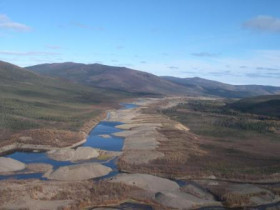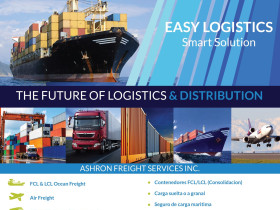With the rise of artificial intelligence (AI) and machine learning (ML) making processes faster and more efficient, it’s changing how data collection and analysis are evolving. Thanks to these advanced technologies, mining companies can leverage vast amounts of data like never before to make ever-more data-driven decisions.
We caught up with some of Seequent’s mining and data experts to dig into how data has evolved and the benefits it has brought the industry over the last decade.
The last decade has marked a significant shift in the mining industry, with data management at the forefront of this change. The transition from traditional, manual record-keeping to advanced digital systems has revolutionised exploration and production, enabling mining companies to handle complex data with unprecedented efficiency.
The integration of data management technologies and cloud-based platforms has allowed for the consolidation of disparate data sources, providing a single source of truth that is both secure and easily accessible. This digital leap has not only streamlined operations, but empowered mining companies to make informed decisions swiftly, leading to more efficient and productive mining activities.
Challenges overcome through data management
Companies face numerous challenges that improvements to data management practices can help to overcome.
For instance, issues of data interoperability, allowing for the integration of data from various sources, is crucial for developing comprehensive geological models. Siloed and disparate data sources prevent a holistic view of your resource, operations and progress, and further amplifies challenges associated with managing data across different teams, sites, and geographies.
“Your models are only as good as the data that you have. Your resource is based off your models and your reserves are based off your resource” continues Dave Peres.
A customer shared that it often took them three months on average to go from data collection in a drillhole to data modelling. This challenges quick decision-making that can save money or improve results on the drill campaign. If you can visualise the results quickly and in near real-time, you can update your drill plan during the campaign – such as moving a drill hole or stopping before the original target depth – which maximises your investment and the outcomes of your drilling campaign.
As pressure builds on mining companies to deliver the critical minerals that can enable our energy transition, and to do it in a faster, more energy efficient way themselves, having geoscience data that’s readily available, easy for teams to access, and connected to a collaborative ecosystem is crucial for enabling data-driven decisions and improved operational efficiency.
Data-driven decisions improve operational efficiency. Image: Seequent
Benefits of improved data management practices
Improved data management practices have brought about a host of benefits for mining companies. Real-time data collection and validation have reduced the margin for error, leading to productivity cost savings and increased confidence among stakeholders. The use of machine learning and analytics can further refine data processing capabilities at scale, enabling the identification of valuable insights that drive strategic operations.
A practical example of embracing and implementing better data management is the introduction of automation into mining operations. For instance, with more accurate data, driverless trucks can target certain areas of a mine more accurately, meaning ores and waste are transported effectively and efficiently, all while using less fuel.
As a result, companies can see a reduction in operational costs and an increase in productivity, which translates to a competitive edge in the market and greater returns for investors.
Innovative solutions: Paving the way for efficiency and productivity
Innovative data management solutions have been instrumental in driving efficiency and productivity in mining. Removing manual data collection and analysis frees up resources, allowing companies to focus on strategic decision-making.
Innovative data management solutions have been instrumental in driving efficiency and productivity in mining. Image: Seequent
Technologies like machine learning help to standardise data capture, enhance quality control and consistency. These advancements facilitate more accurate resource modelling and mine planning, leading to increased productivity and a more sustainable approach to mining operations and exploration.
By working with cloud-based solutions to automate as much of your workflow as possible, mining companies can benefit from efficient data collection, leading to more efficient operations and therefore a reduced carbon footprint.
Connected workflows not only save time on data collection — they also have the ability to log data in a place that can be accessed and used by other applications and services for quick and easy collaboration with stakeholders.
As the industry continues to evolve, the role of data management in driving innovation, good governance, and efficiency will only become more significant. As more sensors are added, and new technologies and methodologies uncovered, the need for analysing, connecting, and processing the masses of data being collected will only grow.
Implementing good data management practices is imperative in maintaining competitiveness and driving mining companies toward the future.
Seequent develops world-leading earth-modelling, analysis, data management, and collaboration software. We help organisations to understand the underground, giving the confidence to make better decisions faster.
Talk to us today about how we can help you unlock the value of your subsurface data and transform your exploration and mine performance.
CTA: Contact Us
The preceding Joint Venture Article is PROMOTED CONTENT sponsored by Seequent and produced in co-operation with MINING.com. For more information visit – www.seequent.com
Source: MINING.COM – Read More










